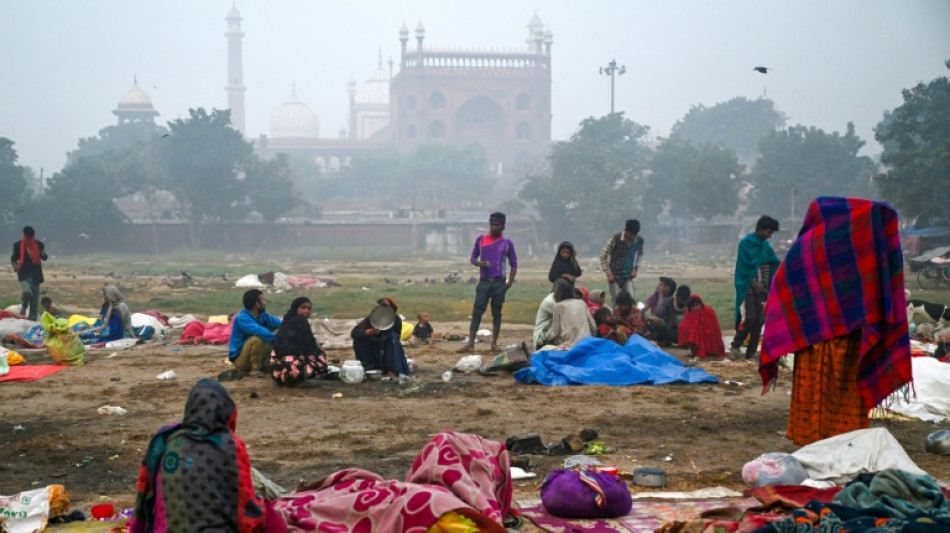
Primary schools empty as smog persists in Indian capital

Residents in India's capital New Delhi again woke under a blanket of choking smog on Friday, a day after authorities closed primary schools and imposed measures aimed at alleviating the annual crisis.
Delhi and the surrounding metropolitan area, home to more than 30 million people, consistently tops world rankings for air pollution in winter.
The smog is blamed for thousands of premature deaths each year and is an annual source of misery for residents, with various piecemeal government initiatives failing to measurably address the problem.
All primary schools were shut by government order on Thursday night with young pupils -- particularly vulnerable to smog-related ailments due to their age -- instead moving to online lessons.
"I have an eight-year-old kid and he has been suffering from a cough the past couple of days," Delhi resident Satraj, who did not give his surname, told AFP on the streets of the capital.
"The government did the right thing by shutting down schools."
Thursday's edict also banned construction work, ordered drivers of older diesel-powered vehicles to stay off the streets and directed water trucks to spray roads in a bid to clear dust particles from the air.
Delhi's air quality nonetheless deteriorated to "hazardous" levels for the fourth consecutive day this week, according to monitoring firm IQAir.
Levels of PM2.5 pollutants -- dangerous cancer-causing microparticles that enter the bloodstream through the lungs -- were recorded more than 26 times above the World Health Organization's recommended daily maximum shortly after dawn on Friday.
- Thousands of fires -
Critics have consistently said that authorities have fallen short in their duty to tackle a crisis that blights the city each year.
"We haven't responded to the emergency with the same intensity with which we are facing this crisis," Sunil Dahiya of New Delhi-based advocacy group Envirocatalysts told AFP.
The acrid smog over New Delhi each year is primarily blamed on stubble burning by farmers in nearby states to clear their fields for ploughing.
A report by broadcaster NDTV on Friday said that more than 7,000 individual farm fires had been recorded in Punjab state, to the capital's north.
Emissions from industry and numerous coal-fired power stations ringing the city, along with vehicle exhaust and the burning of household waste, also play a part.
"Since we haven't yet carried out any systemic long-term changes, like the way we commute, generate power, or manage our waste, even the curtailed emissions will be high," Dahiya said.
Cooler temperatures and slow-moving winds worsen the situation by trapping deadly pollutants each winter.
A study in The Lancet medical journal attributed 1.67 million premature deaths to air pollution in the world's most populous country in 2019.
I.Saccomanno--PV
